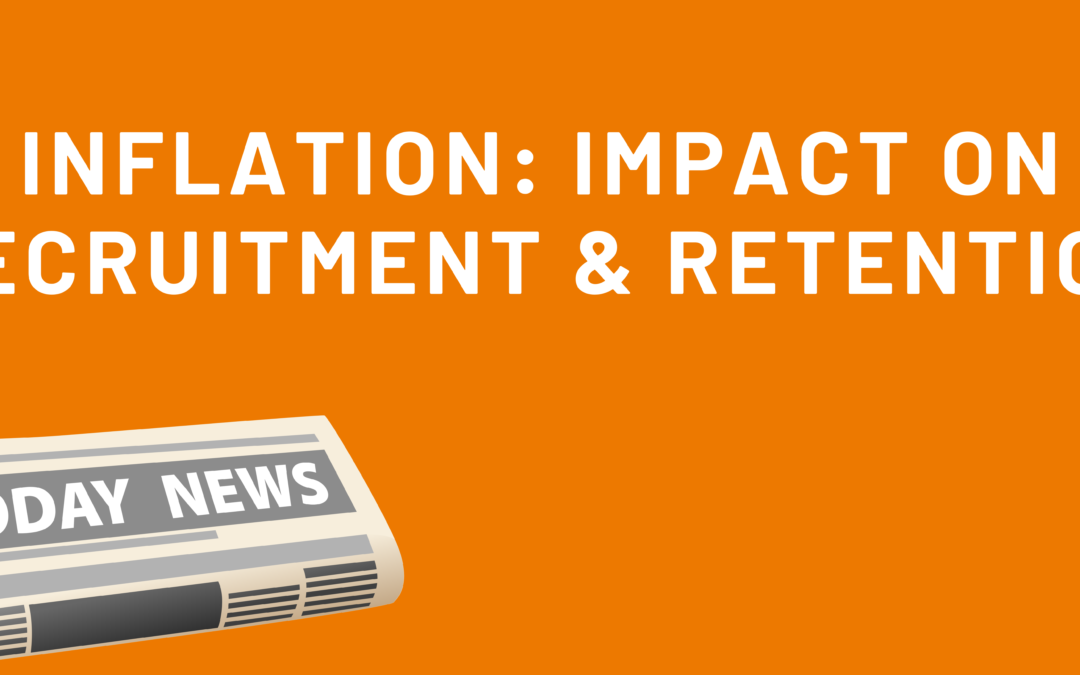The UK is currently facing the worst cost of living crisis they have witnesses in a decade. Recent statistics have shown that workers needs an 8% rise in payment in order to keep up with the cost of living increase.
These recent turn of events have left a mark on business decision-makers, as they are left wondering how to attract and retain talent. This overall raises the question of how companies adapt recruitment to compete.
Inflation can have a significant impact on recruitment and retention within an organisation. Here’s how inflation can affect these areas:
- Salary Expectations: Inflation wear down the purchasing power of money over time, meaning that the same amount of money will buy fewer goods and services. As a result, job seekers might expect higher salaries to compensate for the rising cost of living. Organisations may face pressure to offer higher starting salaries to attract qualified candidates.
- Competitiveness: Inflation can make the job market more competitive as individuals seek higher-paying positions to counter the effects of rising prices. This could lead to an increase in the number of applicants for job openings, allowing organisations to be more selective in their hiring.
- Skills Shortages: High inflation can create uncertainties in the economy, which might lead to skill shortages as people prioritise short-term employment solutions over investing in long-term skills development. This could make it harder for organisations to find candidates with the required skills and experience.
How to maintain staff retention:
- Real Wage Reduction: Inflation can lead to a reduction in real wages (wages adjusted for inflation). If salaries do not keep pace with rising prices, employees may find it harder to maintain their standard of living. This can lead to dissatisfaction and potentially impact employee morale and loyalty.
- Employee Expectations: Similar to the hiring process, current staff may anticipate salary revisions that consider the impact of inflation. Without these revisions, employees might experience a sense of being underestimated and could potentially become more inclined to investigate alternative employment prospects.
- Turnover: Inflation can contribute to increased turnover if employees perceive that other opportunities offer better compensation or benefits. This can be particularly true for top-performing employees who are more likely to be headhunted by competitors.
- Cost of Benefits: Beyond salaries, inflation can affect the cost of benefits such as health insurance, retirement plans, and other perks. If an organization struggles to keep up with these rising costs, it might impact employee satisfaction and retention.
Here are some strategies your company can incorporate to address inflations effects:
- Regular Compensation Reviews: Conduct regular salary and compensation reviews to ensure that employees’ wages are keeping up with inflation. This can help maintain their purchasing power and job satisfaction.
- Transparent Communication: Clearly communicate any changes in compensation and benefits due to inflation. Transparent communication can help manage employees’ expectations and reduce dissatisfaction.
- Skill Development: Invest in training and development opportunities for employees to ensure that skill shortages do not become a significant problem. This can enhance your organisation’s ability to attract and retain top talent.
- Flexible Benefits: Consider offering flexible benefits packages that allow employees to choose benefits that matter most to them. This can help offset the impact of inflation on benefits like healthcare and retirement plans.
Inflation has had a complex impact on recruitment and retention. It is a challenge that requires a proactive and strategic response from businesses. To implement the correct measures to manage the effects of inflation, companies must maintain employee retention and satisfaction during this time, demonstrate transparent communication, and a commit to the well-being of employees, which collectively reinforces a company’s ability to weather the storm of inflation.

